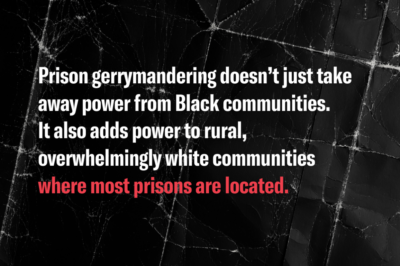ACLU of Florida Raises Concerns Over Flaws in Civil Rights Restoration Plan
FOR IMMEDIATE RELEASE
CONTACT: media@aclu.org
TALLAHASSEE, FL – The American Civil Liberties Union of Florida today applauded Governor Charlie Crist’s announcement that he and the cabinet (sitting as the Board of Executive Clemency) will address civil rights restoration for ex-offenders through clemency reform this week. However, the ACLU warned that any plan that has exclusions or requires restitution to be paid before civil rights can be restored would be unfair.
Such burdens hinder the ability for ex-offenders to obtain employment to pay restitution, support themselves and their families and successfully re-integrate into society.
“We are encouraged that the governor is taking the lead and will soon announce his plans for clemency reform,” said Muslima Lewis, Director of the ACLU of Florida’s Voting Rights Project. “But clemency reform should be meaningful. The state should automatically restore civil rights to all ex-offenders once they have completed all non-monetary terms of their sentence and supervision – not perpetuate financial barriers and make the difficult transition back into society even more difficult.”
The plan to be set forth by the clemency board reportedly would continue to disenfranchise those most in need by denying restoration of civil rights if they cannot afford to pay restitution. Although Governor Crist and Florida Chief Financial Officer Alex Sink have been heading in the right direction with the reforms, said the ACLU, they are being met with resistance from Attorney General Bill McCollum and Agriculture Commissioner Charles Bronson, who are members of the cabinet.
The ACLU agrees that restitution should be paid, but said that without restoration of civil rights (and the eligibility for state occupational licenses), it will be more difficult for individuals to fulfill this obligation. Without the ability to work, ex-offenders are unable to pay restitution and become productive citizens.
“This clemency reform solution falls short of what is needed and fails to achieve the goals that it is intended to address,” said Larry Helm Spalding, Legislative Staff Counsel for the ACLU of Florida. “Simply restoring the rights of some while continuing to relegate others to a second class citizenship is an unfair and unjust system. It is a vicious circle that can be ended by the Board of Executive Clemency.”
Civil rights are denied to nearly one million ex-offenders in Florida, more than any other state. Civil rights include the right to vote, to hold public office and to sit on a jury. Civil rights restoration is required before ex-offenders can apply for any one of nearly a hundred occupational licenses. Only two other states, Kentucky and Virginia, impose lifetime bans on civil rights to ex-offenders that have completed all non-monetary terms of their sentence.
The Ex-Offender Task Force, which was commissioned by former Governor Jeb Bush, issued its report in late December finding that people who have not had their civil rights restored face “a significant barrier to employment, in part because of the difficulty in securing restoration.”
More information is online at: www.aclufl.org/issues/voting_rights/florida_voting_ban.cfm and www.restorerights.org
Stay Informed
Every month, you'll receive regular roundups of the most important civil rights and civil liberties developments. Remember: a well-informed citizenry is the best defense against tyranny.




